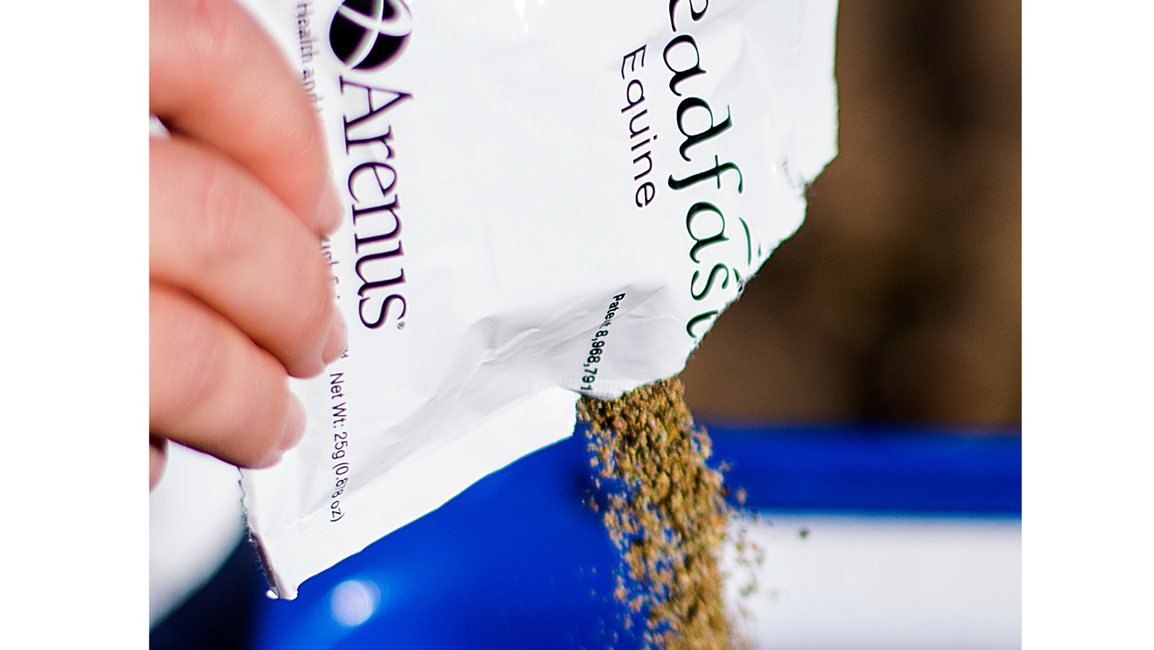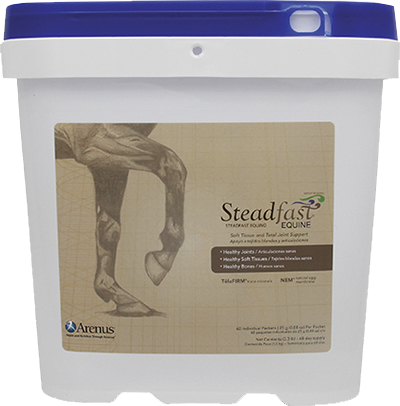
Are your horses really getting the minerals they need?
The simple answer to the question, "What is TelaFIRM?" is that it is a mineral supplement, but the reality is that is so much more.

Almost every supplement and feed these days advertises the addition of minerals to their formulation and this addition makes their "new and improved" version the best, most efficacious one out there. But is it really?
An animal's metabolism is finicky and their ability to put these supplemented minerals to work can be limited, so its important that you have an understanding of what they may be lacking and the difference in mineral availability.
By looking at a feed label, you and your vet may determine that your animal is receiving plenty of the essential minerals in their diet, but the amount actually absorbed by your animal can vary greatly on the type of mineral in the feed. By "type," we're referring to the specific structure of the mineral, not just the mineral itself.
For further insight, we turn to Dr. Ken Kopp:
"The most common form of trace minerals used in horse feeds are inorganic mineral salts such as zinc oxide or copper sulfate. These are the least expensive forms of trace minerals and least bioavailable to the animal. The vast majority of inorganic trace minerals will never be absorbed out the horses’ intestinal tract. In fact, inorganic trace mineral salts have now become an environmental concern in the food animal industry. So much of the inorganic trace minerals are passing out in the manure that the environment is being polluted.
Inorganic mineral salts in the acidic pH of the horse’s stomach will break apart. For example, when copper sulfate reaches the horse’s stomach the copper will separate from sulfate. Then in the alkaline pH of the small intestine the copper can recombine with other molecules to form un-absorbable complexes. When this happens the copper will never be absorbed by the horse. This same problem occurs with zinc and manganese inorganic salts."
He goes on to state that things like phytates in grain, calcium in alfalfa and even hard water can bind with inorganic minerals and render them useless. But, where there's an inorganic mineral, there's also an organic mineral!
Dr. Kopp explains that a mineral described as "organic" or, more commonly, "chelated" means that this mineral is bound to a carbon atom rather than a salt. The chemical bonds of a chelated mineral are considerably stronger than those of a salt bound mineral, thus offering that mineral protection through the stomach's acidic environment and increasing the chance for optimal absorption in the hindgut. Most feeds and supplements do not include chelated minerals as part of their formulations due to their high cost.
Minerals like zinc, copper, selenium and manganese play a significant role in structural health, development and repair. By optimizing the absorption of these, you can ensure your animal receives the tools they need to remain strong and active.
TelaFIRM is exactly that; a balanced, heavily researched, combination of these essential minerals. In fact, this particular formulation has been proven to increase bone mineral concentrations and bone breaking strength, reduce tendon, ligament and cartilage problems and even reduce inflammation within the joint capsule.
It's important to note that not every chelated mineral has shown these results. The minerals included in TelaFIRM are actually double chelated, meaning they are bound to two carbon atoms, allowing them even more acid resistance and increased absorption.
Currently, Steadfast Equine, Steadfast Canine and Steadfast Equine Growth are the only supplements specifically designed for horses and dogs that contain TelaFIRM. Each of these supplements sport a patented formulation with species specific research proving their efficacy.
When choosing a structural support supplement for your animal, take everything into account. Ask yourself the important questions like:
- What research has been done on the finished formulation?
- Is this supplement patented?
- What is unique about this supplement?
- Will my animal be getting the most benefit possible?
Just because a mineral is listed on the label, doesn't mean its included in optimal amounts or in the best form possible. By doing a small bit of research before purchasing, you can be sure you're giving your animal the best chance for a strong, functional life.



